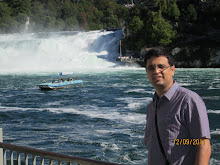After the recent spate of terror attacks in Mumbai I bagan wondering how telecom service providers can contribute to minimizing such attacks. Strict documentation requirements and legal interception tools are already mandatory requirements. In legal interception the role of the Service provider is reactive wherein it records conversations for telephone numbers provided by the IB. However, Service providers can work on a number of proactive measures to help Intelligence agencies.
Intelligent tools can be employed which trace each and every call for keywords like "bomb", "ammunition", "blasts" etc. These could be specifically applied on calls to and from hostile nations. The tool would throw results on a weekly basis and by mapping results to subscriber profiles a suspicion list could be developed and tracked. It is interesting to note that call volumes to a hostile nation have dropped by 30% in days after the Mumbai carnage. This is difficult to dismiss as a co-incidence.
Advancements in LBS and GIS technology can be used to track device locations with pin-point accuracy. This would be invaluable in close combat situations where location information would be the key.
Additionally the DoT will need means to track satellite calls originating and terminating into Indian mainland. An article in this regard is available on http://in.news.yahoo.com/241/20081129/1264/tbs-dot-looks-for-ways-to-track-satphone.html
The cost of employing such techniques might be large but ther are vast unutilized USO funds which can be utilized for the purpose. Even a single 26th November like attack averted would be worth the effort!
Subscribe to:
Post Comments (Atom)




No comments:
Post a Comment